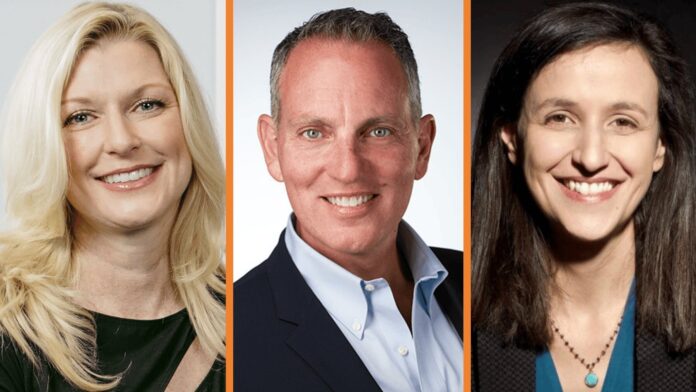US PROs ASCAP and BMI, and Canada’s SOCAN, jointly announced today (October 28) what they call an “alignment” of their AI registration policies.
The three major North American PROs say that they will now accept registrations of “partially” AI-generated musical works
These works can now be registered directly with the individual societies.
All three PROs’ registration policies define a partially AI-generated musical work as one that “combines elements of AI-generated musical content with elements of human authorship”.
According to the three PROs, these works will now be included as part of the full repertoires licensed by each society.
However, musical compositions that are “entirely created” using AI tools are not eligible for registration with any of the individual societies.
In a joint statement issued today, ASCAP, BMI, and SOCAN said that their policy alignment “reflects the fact that songwriters and composers increasingly incorporate a variety of AI tools into their creative process and workflow”.
The statement continued: “While an increasing number of AI tools are training their models in an ethically responsible manner that respects the rights of human creators, the three PROs emphasized their firm position that AI technology companies ingesting and training models on copyrighted musical works without permission from, compensation for, or credit to creators is not fair use, but theft.”
The policy update from the three PROs arrives 10 months after the United States Copyright Office (USCO) released a report outlining its approach to granting copyrights to content created using generative AI.
The USCO’s verdict was that a work created solely through AI is not copyrightable, but a work that combines human creativity with AI can be copyrighted, so long as there is a “sufficient” amount of human expression in that work.
Elsewhere in their statement published today, ASCAP, BMI and SOCAN stressed that they have “advocated for enforcement of strong copyright laws and staunchly defended the rights of music creators in ongoing debates over AI policy across the US and Canada”.
They added that “all three PROs have endorsed meaningful AI legislation, supported lawsuits filed on behalf of music creators against the illegal use of their work by AI companies around the globe and weighed in on major AI policy initiatives and studies, including those launched by the U.S. Copyright Office, The White House and the Government of Canada, among others”.
“We are clarifying our registration policy to now welcome partially AI-generated musical works because we believe AI can be a powerful tool for our members, as long as the law puts humans first and technology companies play fair and respect the rights of creators.”
Elizabeth Matthews, ASCAP
Elizabeth Matthews, CEO, ASCAP, said: “Songwriters and composers have always experimented with innovative tools as part of their creative process, and AI is no exception.
“We are clarifying our registration policy to now welcome partially AI-generated musical works because we believe AI can be a powerful tool for our members, as long as the law puts humans first and technology companies play fair and respect the rights of creators.”
“All music creators will benefit from this aligned approach to the registration of partial AI-works that appropriately values creators’ contributions and ensures they are paid properly.”
Mike O’Neill, BMI
Mike O’Neill, President & CEO, BMI, added: “This is an important first step in protecting human creativity as AI technologies evolve, while supporting the songwriters and composers who choose to use AI as a tool to enhance their creative process.
“All music creators will benefit from this aligned approach to the registration of partial AI-works that appropriately values creators’ contributions and ensures they are paid properly.”“The future of music can embrace AI and still remain deeply human.”
Jennifer Brown, SOCAN
Jennifer Brown, CEO, SOCAN, said: “This alignment creates a legal and ethical path forward for AI in music. It recognizes that music creators are embracing new tools, while reinforcing our commitment to what matters most: respect for their work and the protection of human creativity.
“The future of music can embrace AI and still remain deeply human.”Music Business Worldwide


